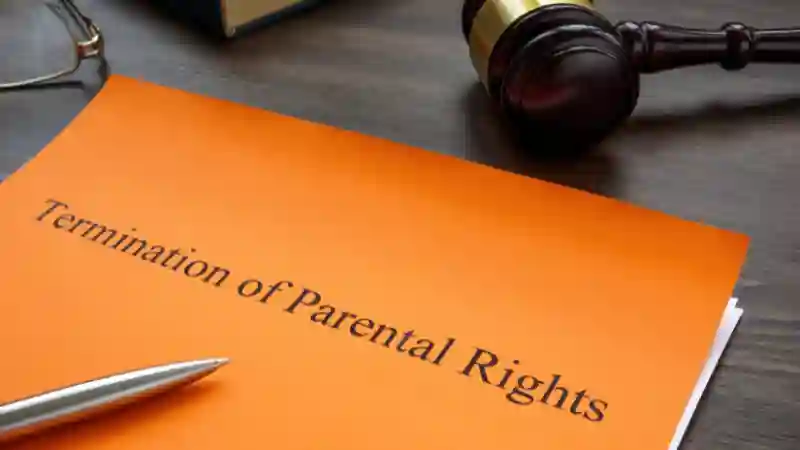Yes, a felon can lose parental rights depending on the circumstances and crime committed. It varies by state laws and the circumstances of each case. In most cases, having a criminal conviction does not automatically mean losing your rights as a parent. If a person is convicted of a serious crime, it may affect their capacity to make crucial choices about their child’s life. This scenario may arise during a separation between parents or if there are worries regarding the child’s safety and welfare.
Parental rights are crucial for maintaining a meaningful and nurturing relationship between parents and their children. These rights encompass responsibilities such as making important decisions about a child’s upbringing, providing financial support, and ensuring their well-being. Losing parental rights can have a profound impact on both the parent and the child, potentially leading to emotional distress and strained family dynamics.
Felony convictions can affect parental rights. It’s a factor that courts consider in determining what’s best for the child. The severity of the felony, the risk to the child’s safety, and the parent’s ability to fulfill responsibilities are taken into account.
How Can A felon Lose Parental Rights?

When a person is convicted of a felony, their parental rights can be terminated, stripping them of the ability to make decisions regarding their child’s custody and visitation. These factors can lead to a revoke of parental rights.
- Abandonment of the child
- Failure to support or maintain contact with the child
- Abuse or neglect of the child
- Long-term mental illness or incapacity of the parent
- Felony conviction of the parent for a crime of violence against the child or another family member
- Voluntary relinquishment of parental rights by the parent. However, terminating parental rights is a serious and irreversible action that requires court approval.
Other Questions:
- Can One With A Misdemeanor Be Denied Housing?
- Anatomy Of A Felony Trial
- What Happens To Your Property If You Go To Jail For Over A Year?
- Why Do Criminal Lawyers Most Often Ask Their Clients To Plead Guilty?
- Can A Felon Own A Sword?
- Can A Felon Get A Hunting License?
The role of criminal convictions in determining parental rights
Criminal convictions play a significant role in determining parental rights for offenders. Courts assess the nature and severity of the offense to determine whether it poses a risk to the child’s well-being. Felonies involving violence, child abuse, or drug-related crimes may have a higher likelihood of resulting in the loss or limitation of parental rights. However, each case is evaluated individually, taking into account various factors to ensure the best interests of the child are met.
Factors considered by courts in deciding the loss of parental rights
The factors may include the parent’s criminal history, the potential for rehabilitation, the parent’s willingness to comply with court orders, the presence of any substance abuse problems, and the impact on the child’s stability and safety. Additionally, the court may consider the parent’s efforts to maintain a relationship with the child, such as their involvement in visitation or counseling programs. Each case is unique, and the court evaluates these factors to determine the appropriate course of action.
The Laws Governing Felons And Parental Rights
Parental rights are typically governed by state laws, which vary to some extent across the United States. In general, courts operate under the assumption that it is in a child’s best interest to have a relationship with both parents, but they prioritize the child’s safety and well-being above all else. This means that parental rights can be limited or terminated if it is determined that such measures are necessary to protect the child.
Some states have explicit laws that address the issue of parental rights for felons. These laws typically require a court to consider factors such as the nature of the felony offense, the extent of the parent’s involvement in the child’s life, the parent’s history of criminal activity, and any potential risk the parent may pose to the child. Understanding the specific laws in your state is crucial when considering the impact of felony convictions on parental rights.
How To Get Back Your Parental Right
Rehabilitation plays a vital role when it comes a parental rights. The ability to demonstrate that you have turned your life around and made positive changes can impact your chances of regaining parental rights. Courts will generally consider rehabilitation as a positive factor, showing that the individual has learned from their mistakes and is committed to providing a safe and stable environment for their children.
Felons seeking to reinstate their parental rights often face legal procedures and requirements that vary depending on the jurisdiction. These may include completing drug or alcohol rehabilitation programs, attending parenting classes, establishing stable employment, and ensuring a suitable living environment for their children.
Please consult an attorney who specializes in family law to understand the specific requirements.
In conclusion, the issue of felons and parental rights should involve an attorney who specializes in family matters. Although being convicted of a serious crime can sometimes mean losing the right to be a parent, there are ways for people who want to make things right and reconnect with their children. Laws and people in charge must make fair decisions that protect children’s and parents’ rights at the same time.

I’m Cli, also known as Castro. An author of felhus.com
I’ve got great passion for felons and wanna see them live absolutely normal again.
